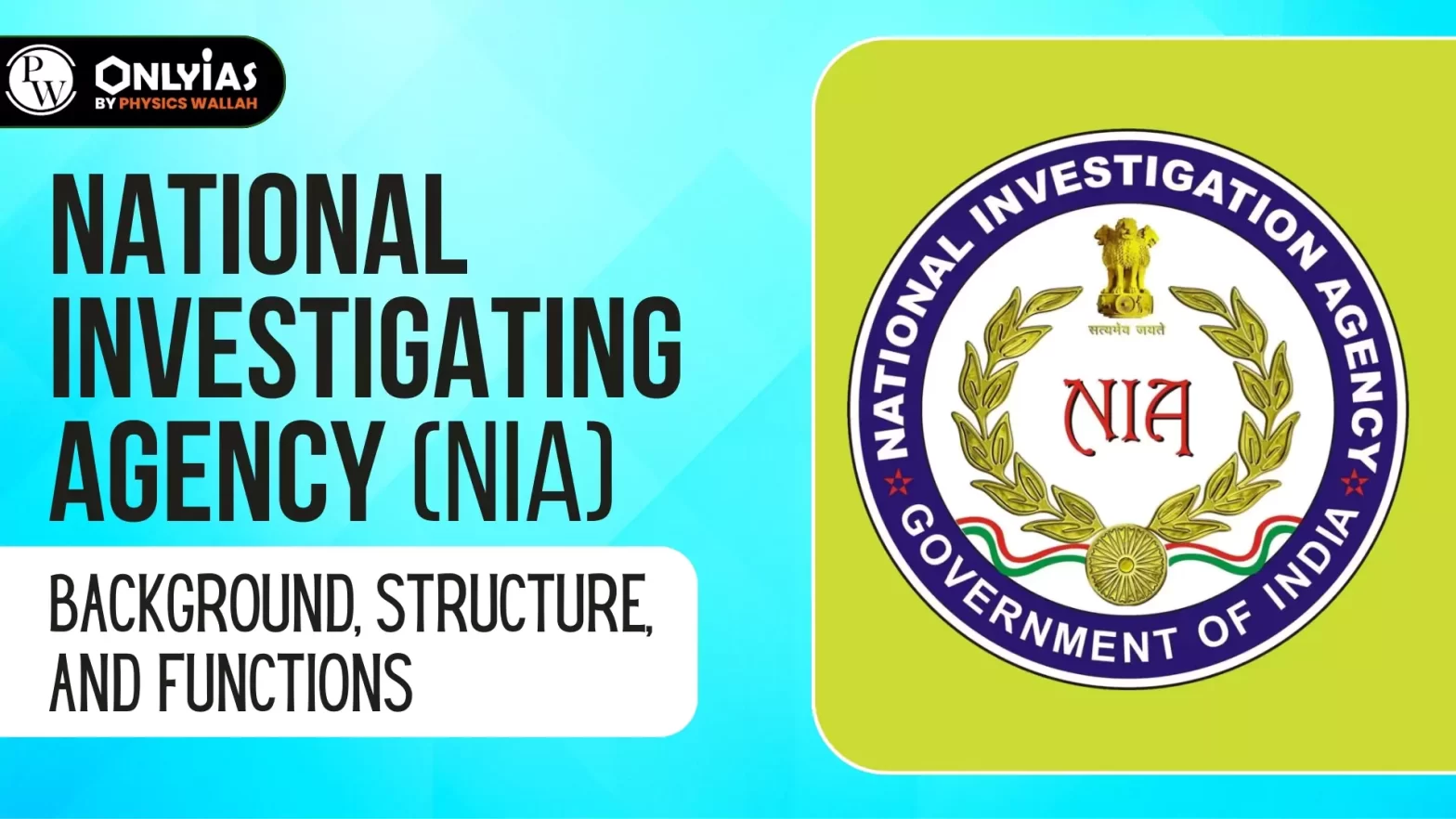NIA (National Investigation Agency), India's premier counter-terrorism agency, investigates and prosecutes offenses, ensuring a terror-free nation.

NIA (Amendment) Bill 2019
|
|---|
| Function | Description |
| Scheduled Offenses |
|
| Confidential Data Sharing: |
|
| Investigation of Terrorist-related Activities |
|
| Counter-terrorism Operations |
|
| International cooperation |
|
| Money laundering and financing of terrorism |
|
| Witness Protection |
|
| Capacity Building: |
|
| Must Read | |
| NCERT Notes For UPSC | UPSC Daily Current Affairs |
| UPSC Blogs | UPSC Daily Editorials |
| Daily Current Affairs Quiz | Daily Main Answer Writing |
| UPSC Mains Previous Year Papers | UPSC Test Series 2024 |
The Agency came into existence with the enactment of the National Investigation Agency Act 2008 by the Parliament of India on 31 December 2008,
The National Investigation Agency Act was passed after the deadly 26/11 terror attack in Mumbai. Such an attack revealed the failure of intelligence and ability to track such activities thereby establishing the NIA.
The National Investigation Agency is a central counter-terrorism agency functioning under the Ministry of Home Affairs, Government of India.
The 2019 Act empowers the NIA to probe terror attacks and also to investigate scheduled offences such as human trafficking; circulation of fake currency; manufacture and sale of prohibited arms; and cyber-terrorism, Now, It has the authority to investigate offenses that are committed outside Indian territory subject to international treaties and domestic laws of other nations.
<div class="new-fform">
</div>
